By Tiyahna Ridley-Padmore
This webpage has been archived as of March 31, 2022. On August 12, 2022, Minister Harjit S. Sajjan announced the new 2022-2023 Refugee Education Council. Please visit this webpage to learn more about the current cohort.
Cette page a été archivée au 31 mars 2022. Le 12 août 2022, le ministre Harjit S. Sajjan a annoncé le nouveau Conseil d'éducation des réfugiés 2022-2023. Veuillez visiter cette page pour en savoir plus sur la cohorte actuelle.
One year ago, the Government of Canada launched the inaugural Refugee Education Council, an advisory body composed of 15 outstanding young leaders with lived experience as refugee and displaced peoples from around the world. The council was funded by a Global Affairs Canada grant, hosted by World Vision Canada, supported by the Canadian International Education Policy Working Group (CIEPWG), and featured members connected to several cross-cutting refugee and displaced networks.
Though formed only a short while ago, the council has already:
- Led and/or participated in over 18 events and sector partner initiatives to share their experiences and priorities and promote their education recommendations, including a panel held at the 2021 World Bank Spring Meetings, a session at the 2021 Rewired Conference, and a feature in the 2021 UNHCR Education Report.
- Engaged the Canadian Missions in Jordan and Kenya, the High Commissioner in Columbia, the Canadian Embassy in Mexico and other global stakeholders on their recommendations.
- Held a virtual event for World Refugee Day 2021 where they called for the inclusion of refugee and displaced learners across social identities and at all levels of decision-making processes. This event is also where the Council launched their Instagram and Twitter accounts @RECforLearning where they have been sharing information and updates about their work.
- Developed an action plan centred on the critical importance of inclusion in improving access to education for refugee and displaced learners. They presented this plan to Minister Gould, the former Minister of International Development and Lloyd Axworthy, the Chair of the World Refugee Council, which successfully led to a two-year extension to the Refugee Education Council term.
And they’re not done yet!
Currently, the council has been connecting with youth from around the world in partnership with World University Services Canada and World Vision Canada to develop a youth manifesto outlining exactly how they would like to see global actors take action on closing the widening gaps of our current education crisis. This manifesto, alongside an accompanying council-led anthology highlighting lived experiences and expertise that illustrate the significance of their manifesto priorities, will be launched at the Government of Canada’s Together for Learning Youth-Led Summit in late March 2022.
The Global Refugee Education Council brings together refugee youth and youth from host communities around the world to advise and inform Canada's Together for Learning campaign – an international campaign to ensure that all refugee and displaced children can access the education they need and deserve.
This achievement is the result of our
ongoing collaboration with colleagues at CIEPWG and Global Affairs Canada, around our shared commitment to promote quality education and lifelong learning opportunities for and amplifying the voices of forcibly displaced children.
Watch this video to learn more:
Here’s why this matters
Education is a right that works to fulfill other rights. When children and youth, especially girls, can access quality education and learning opportunities that build on their skills and knowledge they become more powerful agents of change for themselves and their communities.
The UN’s
Sustainable Development Goals have a target to ensure that all girls and boys complete free, equitable and quality primary and secondary education by 2030. We’ve made progress, but as many as 48 per cent of girls continue to remain out of school in some regions. And the COVID-19 pandemic has seen
nationwide school closures in 194 countries, affecting nearly 1.6 billion learners – over 90 per cent of the world’s school-going population.
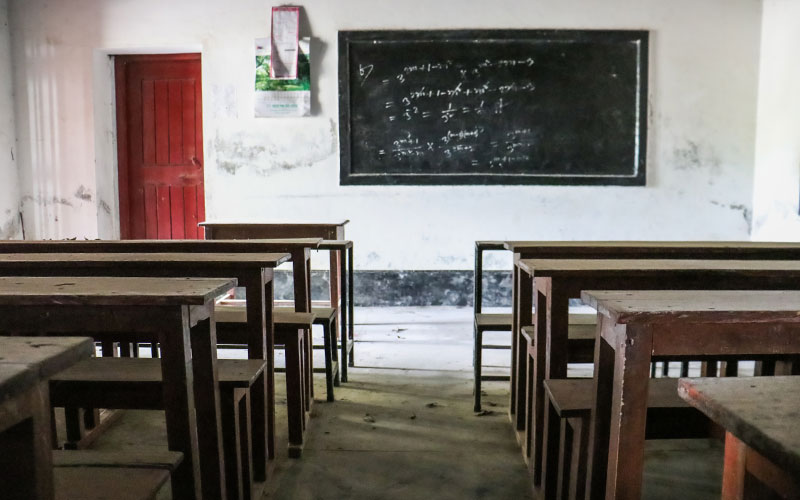 A classroom sits empty in Bangladesh. Photo: Md. Golam Ehsanul Habib
A classroom sits empty in Bangladesh. Photo: Md. Golam Ehsanul Habib
For the most vulnerable children,
especially refugee girls, accessing education and staying in school is hard enough. Prior to the COVID-19 crisis, 75 million children and youth were already in urgent need of educational support due to crisis and conflict. The Malala Fund esti-mates that approximately
20 million more secondary school-aged girls could be out of school after the crisis has passed.
Historically, the voices of the people most impacted by global education policies and programs have been chronically under-represented at decision-making tables. Despite this reality, young people from around the world who have experience with forcible displacement are among
the most credible experts in informing global refugee education.
The only way to achieve sustainable free, equitable and quality primary and secondary education for boys and girls by 2030 is by creating space for forcibly displaced peoples to shape the policies that affect them and their communities directly.
The Global Refugee Education Council brings together 15 young experts with a diverse range of experiences and knowledge related to global refugee education. Together, these leaders will work to strengthen the Government of Canada’s commitments to addressing the growing global displacement crisis.
Meet the Global Refugee Education Council
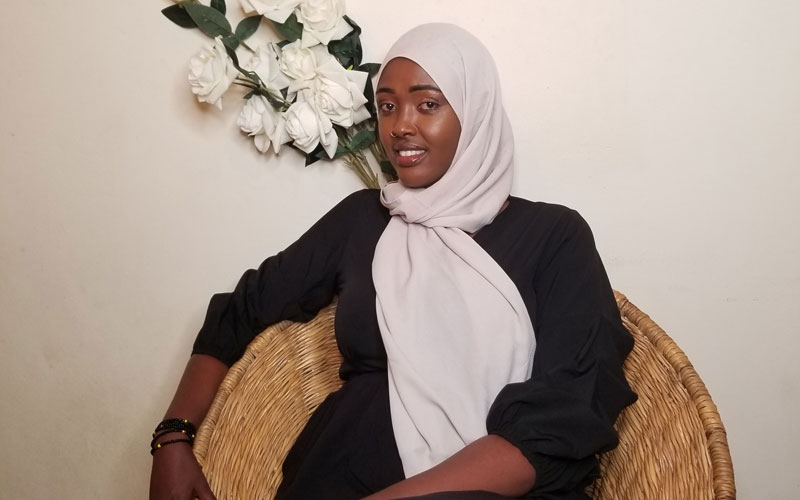
Istarlin Abdi, South Sudan/Somalia
Istarlin is a single mum of two girls, an advocate for human rights, a storyteller and a photographer. In 2017, she co-founded Dream Studio, a refugee-based media company focused on creating space for fellow refugees to tell and share their own stories with the rest of the world. She has worked with Filmaid International and Refunite as a content creator and photographer. She has also worked with Windle International Kenya as a community worker for five years, working with vulnerable schoolgirls, parents and the community at large.
As a refugee from Somalia who has experienced displacement for over 20 years, Istarlin has long struggled with her sense of identity, self-worth and belonging. She fears that her daughters, caught in the same circumstances of displacement, are beginning to struggle with this too. Istarlin believes that education is a great equalizer. She has joined the Council to help break the generational curse of displacement by making education a global priority.

Bikienga Amdiatou, Burkina Faso
Bikienga Amdiatou is from the central-northern region of Burkina Faso. Fragility and insecurity in her area has led many students to drop out of school due to classroom closures. In fact, Bikienga herself almost dropped out of secondary school due to lack of funds. Luckily, she received support from NGOs which enabled her to continue her education. Now, at 20-years-old, she is a second-year university student studying human resources.
Bikienga is a former fellow of the Promoting Equality And Safety in Schools (PEASS) project, the winner of the Excellence Award of the President of Faso and among the top five highest academic achievers nationally for her grade level in 2019. Beyond excelling in her own studies, Bikienga wants to make sure that more girls can become their best selves despite conflict and internal displacement. She is an active member of several school and community initiatives that are concerned with access to education and hopes to advocate for girls who have had to drop out of school on a global stage.
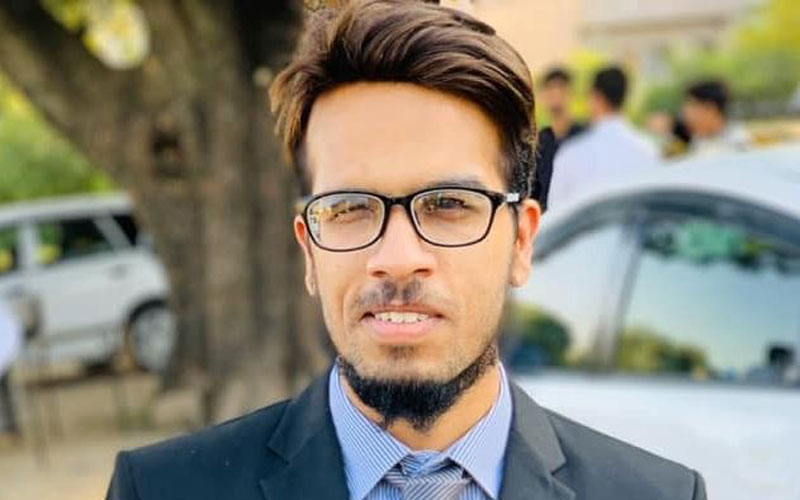
Suleman Arshad, Pakistan
Suleman is a visually challenged, youth activist from Pakistan who advocates for the rights and development of his community. At 12-years-old, Suleman started to lose his sight and was enrolled in a school for people who are visually impaired. In his community, children and youth with disabilities are discouraged from getting an education alongside able-bodied children and are often pushed aside in society.
Suleman has been working to fight the stigma and challenges faced by marginalized students. He founded School of Inclusion, a youth led organization which promotes inclusive and quality education for youth with disabilities. He is a member of the Commonwealth Children and Youth with Disability Network, which seeks to provide quality education to children and youth with disabilities. In 2016, he received the Commonwealth Youth Worker Award. As a member of a host community, Suleman has witnessed the challenges and hostility faced by refugees from Afghanistan. He hopes to use his experience and skills to make schooling more inclusive for refugees, especially refugees with differing abilities.

Laura Barbosa, Colombia/Canada
Laura is an educator, a community worker and a human rights advocate. Born in Colombia, with limited access to education, forced displacement by the military or paramilitary was common. At age 12, her mother was murdered by members of an illegal armed group and her father was disappeared soon after. At 18-years-old, Laura fled to China, looking for a better future. She worked as a Spanish teacher and volunteered with refugee children from Myanmar who had been recently displaced to Malaysia.
Today, Laura lives in Canada and works to encourage those who have been forcibly displaced to be brave and fight for their dreams. She is the program coordinator at a student-led charity that strives to create positive learning environments to help youth reach their full potential. Laura is passionate about community development and wants to continue to support safe and sustainable environments for youth facing forced displacements.

Malual Bol Kiir, South Sudan/ Canada
Malual Bol Kiir is a South Sudanese Peacebuilder and a former refugee. He cofounded the African Youth Action Network (AYAN), a leadership and peacebuilding organization that recruits youths to work together as agents of peace and conflict prevention. He is a founding member for the Search for Common ground’s Global Youth Leadership Council (GYLC). In 2015, He was a member of the advisory panel of experts to the UN Secretary General on UN Security Council’s Resolution 2250 mandated progress study on youth, peace and security with the final report “The Missing Peace”. In 2017, he was honoured with the Women’s Refugee Commission’s 2017 Voices of Courage Award. Malual is a member of the Refugee Advisory Network, and a committed advocate dedicated to promoting refugee education.

Nhial Deng, Kenya/Ethiopia
Nhial moved to Kakuma refugee camp in Kenya in 2010 after fleeing an armed attack on his village in Ethiopia. With this first-hand experience, the 22-year-old firmly believes that education is critical to helping young refugees secure a more hopeful and brighter future, for themselves and their communities. Nhial is a powerful advocate for refugees and has spoken at several forums including the UNHCR twelfth High Commissioner’s Dialogue on Protection Challenges. He has participated in several youth networks and initiatives including the Global Changemakers, the ONE Campaign Champions for East Africa, and the Women Deliver Young Leaders Program.
Nhial heads the Refugee Youth Peace Ambassadors, a refugee youth-led initiative in Kakuma which works towards promoting peaceful co-existence between different communities in the camp The group focuses on empowering young people as peacebuilders and social entrepre-neurs. He is also an Education Consultant for Kakuma Innovation Lab School and a member of the Amala's Youth Advisory Group.

Amelie Fabian, Canada/Rwanda
Fearing persecution following the Rwandan genocide, Amelie’s family fled from Rwanda to Malawi where she lived as a refugee from the age of six to18. She came to Canada in 2014 through World University Services of Canada’s (WUSC) Student Refugee Program to complete an un-dergraduate degree at McGill University. Since arriving in Canada, Amelie has been dedicated to improving access to education. She has volunteered as the co-chair of WUSC’s local commit-tee, as a member of the WUSC Board of Directors and as a member of the CIEPWG’s youth council. Amelie has met with Canadian MPs and policy advisors to advocate for the prioritization of education and has participated in speaking engagements on refugee education such as the 2018 UN General Assembly and on a roundtable with Minister Gould on the impact of COVID-19 on refugee education.
Amelie is completing her Master of Public Policy and Master of Global Affairs as part of a dual-degree program between Sciences Po Paris and the University of Toronto. Her main passion is in education policy and its role in facilitating the inclusion of marginalized communities such as refugees to reduce inequality. Amelie hopes to use her education, lived experience and connec-tions to help more refugees and displaced youth obtain an education.

Qais Ghasan Abdulrazzaq, Jordan/ Syria
During the Syrian civil war, Qais and his family fled their home in search of safety and opportunity. The journey to Jordan was not easy and things didn’t get easier once he arrived at the refugee camp. Qais quickly recognized the unique importance of education for refugees who are already at a disadvantage in their host communities and often faced with low job prospects and high rates of unemployment. He saw education as a means to empower himself to support his family and his community.
Qais studied Press and Media at AMITY University, and, from there, joined the Zaha Cultural Centre as a Robotics trainee through World Vision’s Youth Career Guidance project. Now, while still living in a refugee camp in Jordan, the 24-year-old has improved his technical skills and is teaching other youth as a robotics trainer. Qais is a life-long learner and is passionate about seeking out opportunities that will continue to help him learn more, grow, and enrich his community.
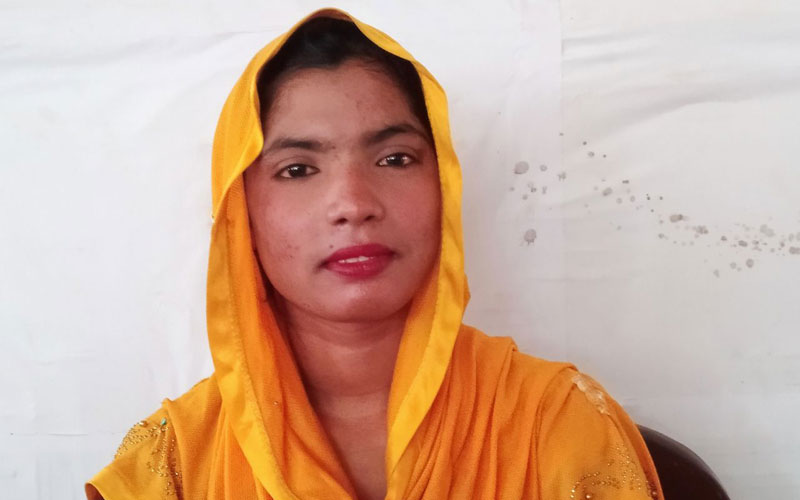
Moriom Khatun, Bangladesh
Moriom Khatun is a 16-year-old student and a community leader in Bangladesh. She is a member of her local adolescent club and the Community Based Child Protection Committee. Moriom has a deep understanding of issues related to child protection and she plays an active role in advocating against matters that are harmful to children, adolescents and her community at large. In 2020, after receiving training from World Vision, Moriom led initiatives to disseminate life-saving information about COVID-19 to adolescents in her community.
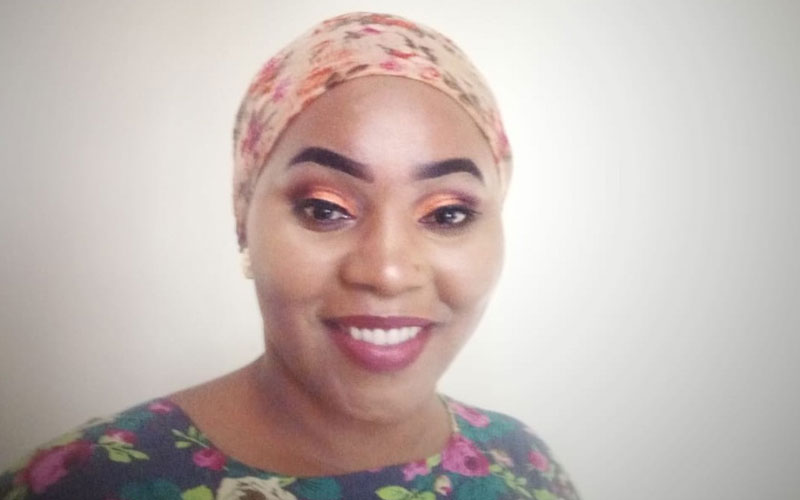
Christine Mwongera, Kenya
Christine Mwongera is a high school teacher with experience working with refugees and teaching in an emergency setting. She is passionate about providing quality education for all children in her community, especially girls. To that end, she started a girls’ mentorship program, a life skills club and a peer counselling initiative at the secondary school where she works to provide psycho-social support for all learners. Christine has also worked closely with the local radio station to sensitize the community on girl child education and to talk about the dangers of harmful cultural practices.
Christine has helped bring young girls who experienced child marriage back to school. She has worked to help out-of-school girls and teenage mothers and has challenged the stigma faced by girls who get pregnant while still in school. She hopes to use her experience as a teacher and advocate to make education more inclusive for all children.
Nabaloum Pascaline, Burkina Faso
22-year-old Nabaloum is acutely aware of the challenges faced by young people navigating fragility, uncertainty and displacement. In 2019, she was internally displaced from her home in Burkina Faso. Not long after, Nabaloum lost both of her parents and moved with her sisters and brothers to live with their grandpa.
At the beginning of the COVID-19 pandemic, she joined an initiative with Fondation Hirondelle to receive training and raise awareness in her community about the virus. As part of the project, Nabaloum conducts interviews with different stakeholders in the community that are broadcasted across radio programs. As a result of her work, Nabaloum has developed strong communication and advocacy skills that she hopes to use to continue to connect with other advocates from around the world and uplift her peers who have been forcibly displaced.
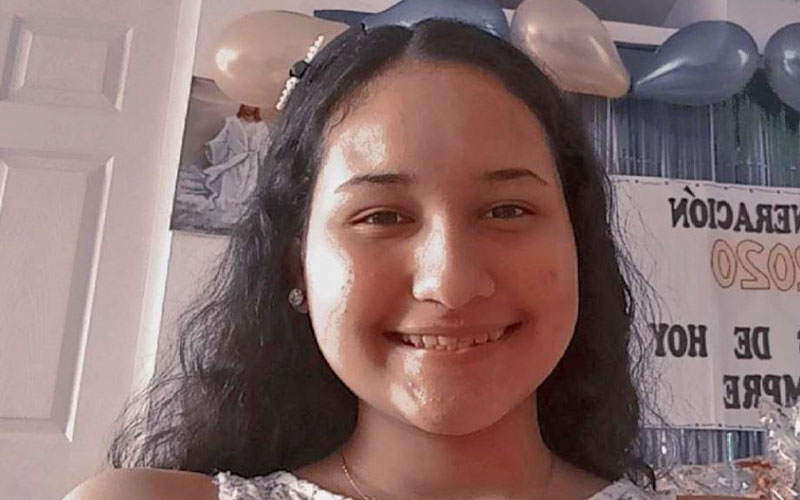
Yvana Portillo, Venezuela/Peru
Yvana is a 15-year-old student, advocate and refugee. In 2017, faced with crisis in Venezuela, her parents sold their car and her family fled to Peru by bus. Yvana was forced to start a new school while navigating uncertainty, hunger and a lack of money. Despite this, she quickly became a leader in her grade. Now, Yvana leads sessions in her classroom and is an emerging advocate for accessible and quality education. Her favourite subject is communications and she wants to continue to improve her capacity to express herself and ask for what she needs. Yvana hopes to learn from other members on the Council while offering her perspective on global education based on what she has seen and lived.

Anojitha Sivaskaran, Sri Lanka
Anojitha is a youth activist based in Sri Lanka. Growing up in northern Sri Lanka during a decades long civil war, Anojitha experienced things like displacement, food shortages, insecurity, injustice and inadequate shelter. From this first-hand experience, a passion for sustainable peace grew. Anojitha obtained her Bachelors in Peace and Conflict Resolution from the University of Kelaniya in Sri Lanka and has completed diplomas in human resource management and transitional justice. She has worked with the United Network of Young Peacebuilders, Tomorrows’ Futurism, AIESEC, the Inter-University Gender Festival and several other initiatives committed to conflict transformation.
Currently, Anojitha works at the National Peace Council of Sri Lanka as a project officer. She works with students to raise awareness and positively influence the public discourse about pluralism to strengthen the reconciliation process in Sri Lanka. Anojitha strongly believes that including young people is a critical component of effective, wide-reaching and sustainable efforts to overcome conflict and fragility.
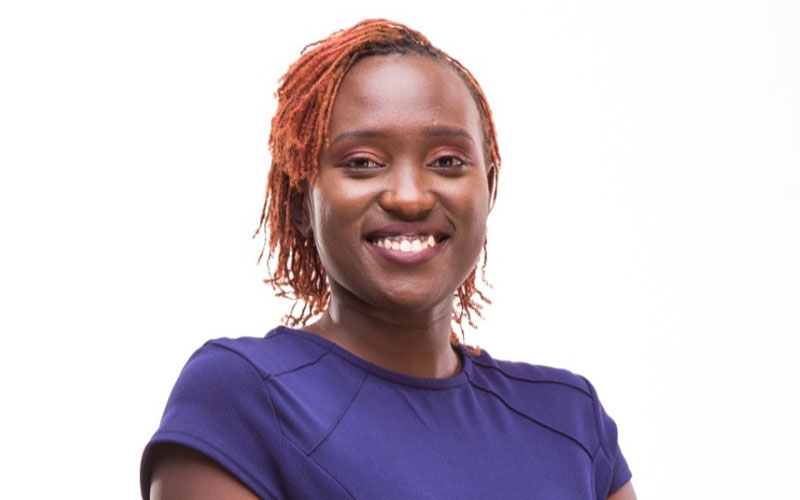
Foni Joyce Vuni, Kenya/South Sudan
Foni Joyce is a communicator and advocate. She graduated top of her class from Jomo Kenyatta University of Agriculture and Technology with a degree in Mass Communication, majoring in Public Relations. Her family fled conflict and war in South Sudan, and for the past 25 years she has lived in Kenya, forced to navigate the stigma associated with being a refugee.
Today, Foni Joyce uses her experience as a refugee and her expertise in communications to shift the narrative of refugees from beneficiaries to partners. She advocates for greater inclusion of youth, women and girls in the decision-making processes that are important to them. Foni Joyce has advocated for refugee youth issues at UNHCR-NGO Consultations, the High Commissioner’s Protection Dialogue, the World Humanitarian Summit in Istanbul, the 2016 and 2018 UN General Assembly and through her role on the UNHCR Global Youth Advisory Council. Foni Joyce hopes to use her experience and expertise to improve refugee education.
What to expect from the new council
Throughout 2021, the Council will convene virtually on an ongoing basis to identify global refugee education priorities and develop recommendations that they will present to Canada’s Minister of International Development three times throughout the year.
World Vision Canada is thrilled to be able to support this outstanding group of young leaders. The expertise and experience they bring through education, training and lived-experience is invaluable, and I for one, can’t wait to see their influence grow.
Tiyahna Ridley-Padmore is World Vision Canada’s policy advisor with a focus on social inclusion. She co-authored World Vision’s Aftershocks report detailing the potential secondary impacts of COVID-19 on children’s education. Tiyahna is a strong advocate for human rights, equity and inclusion. She holds an MA in Public Policy, Administration and Law from York University and a BA in Political Science and Communications from the University of Ottawa.